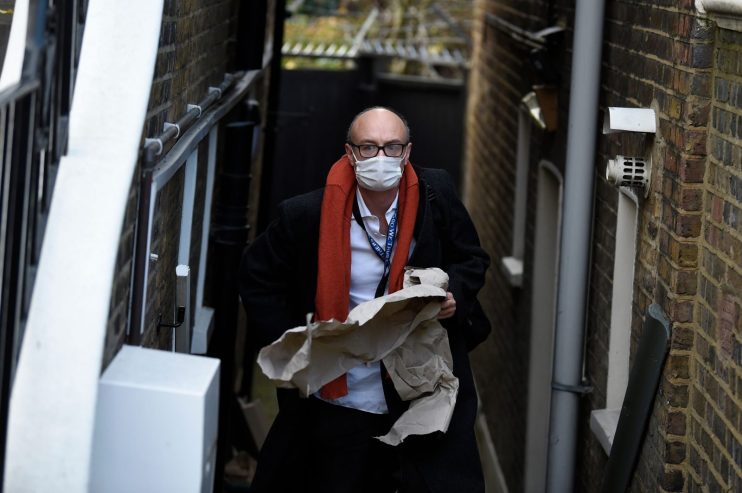Raab condemns ousting of Hong Kong opposition lawmakers as assault on freedoms

British foreign secretary Dominic Raab has condemned the expulsion of four opposition pro-democracy lawmakers in Hong Kong as an assault on the city’s autonomy and freedoms.
Hong Kong ousted four opposition politicians from the city’s legislature for “endangering security” after China passed a resolution allowing the city’s executive to expel legislators deemed dangerous to national security.
Read more: Got an HSBC account? It’s time to show your support for the people of Hong Kong
The expulsions came moments after Beijing adopted a resolution allowing the territory’s executive to expel legislators deemed to support Hong Kong independence, have colluded with foreign forces or threatened national security.
“China’s decision to arbitrarily remove elected pro-democracy Hong Kong legislators from their positions represents a further assault on Hong Kong’s high degree of autonomy and freedoms under the UK-China Joint Declaration,” Raab said in a statement on Wednesday.
“This campaign to harass, stifle and disqualify democratic opposition tarnishes China’s international reputation and undermines Hong Kong’s long-term stability,” he added.
Shadow foreign secretary Lisa Nandy has called for the British government to summon the Chinese ambassador to make its objections to Beijing’s new resolution clear.
The resolution adopted by Beijing allows Hong Kong’s executive to remove legislators without having to go through the courts, which has been condemned by critics as a bid by China to end political opposition in the city.
The city government said in a statement the four legislators – Kwok Ka-Ki, Alvin Yeung, Dennis Kwok and Kenneth Leung – were expelled from the assembly for endangering national security, but did not provide any further details. Other pro-democracy politicians are expected to resign en masse in protest.
Before the Open newsletter: Start your day with the City View podcast and key market data
While the Hong Kong’s Legislative Council is controlled by a pro-Beijing camp, the resignations of its pro-democracy members would effectively turn the body into a rubber stamp.
The executive’s opposition members have tried to make a stand against what many in Hong Kong see as Beijing’s crackdown on the freedoms afforded to the financial hub under the “one country, two systems” framework introduced when Britain handed control of the territory to China in 1997.
“My mission as a legislator to fight for democracy and freedom cannot continue but I would certainly go along if Hong Kong people continue to fight for the core values of Hong Kong,” Kwok Ka-Ki told reporters.
China has denied curbing rights and freedoms in the city, but authorities in Hong Kong and Beijing have moved swiftly to stifle dissent after anti-government protests flared in June last year, plunging the city into crisis.
“This completely violates the ‘one country, two systems’ proper procedures and ignores basic human rights,” Dennis Kwok told reporters.
Beijing introduced sweeping national security legislation in Hong Kong, punishing anything China considers subversion, secessionism, terrorism and collusion with foreign forces with up to life in prison.
Read more: Over 1m people from Hong Kong could come to UK under new visa rules
Since the introduction of the new security laws, authorities have removed some pro-democracy books from libraries, banned certain songs and other activities in schools, declared some slogans illegal and raided the newsroom of an anti-government tabloid.
Critics have accused authorities of attempting to stifle Hong Kong’s pro-democracy movement, while supporters of the government say the authorities are trying to restore stability to the city following more than a year of unrest.